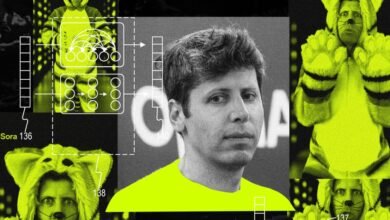Sam Altman: Personalized AI’s Privacy Risks

▼ Summary
– Sam Altman predicts AI security will become the central challenge in AI development, replacing traditional AI safety concerns.
– He identifies AI personalization as a major security risk, where models learning user data could be manipulated to reveal sensitive information.
– Altman emphasizes that AI systems face growing threats like prompt injections and need robust defenses against adversarial attacks.
– He encourages students to study AI security, noting it will be a critical field with increasing demand for expertise.
– Altman highlights AI’s dual role as both a source of security problems and a potential solution for cybersecurity threats.
In a recent discussion at Stanford University, OpenAI CEO Sam Altman identified AI security as the defining challenge for the next stage of artificial intelligence development, urging students to consider it a prime field for study. Altman explained that traditional AI safety concerns are rapidly evolving into security issues that require robust technical solutions. He specifically highlighted personalized AI systems as an emerging area of vulnerability that demands immediate attention.
When asked about the practical meaning of AI security, Altman described a landscape where increasingly capable models face sophisticated manipulation attempts. He emphasized that adversarial robustness, protecting AI from prompt injections and other attacks, has become critically important. As organizations deploy AI more widely, the potential impact of security failures grows exponentially. Altman pointed out that the very features making AI useful also introduce new risks, creating an urgent need for specialists who can build resilient systems.
One significant concern Altman raised involves the intersection of personalization and external data access. Users appreciate how AI systems like ChatGPT learn from their conversations and connected information, tailoring responses to individual needs. However, this personalization creates a dangerous scenario when combined with the ability to link AI to external services. Malicious actors could potentially exploit these connections to extract sensitive personal data, from private health details to confidential communications.
Altman illustrated the problem by comparing AI behavior to human discretion. While people naturally understand social context and know what information to share in different situations, AI models lack this innate judgment. If you confide personal health issues to an AI assistant and later have it make online purchases, there’s currently no reliable mechanism to prevent that e-commerce platform from accessing your private medical history. This creates a fundamental security challenge that requires 100% robustness to solve.
Despite these emerging threats, Altman maintains that AI will play a dual role in cybersecurity. The same technology creating new vulnerabilities can also become our most powerful defense tool. AI systems can be trained to identify attack patterns, monitor for suspicious activity, and automatically respond to threats faster than human operators. This bidirectional dynamic means that while AI introduces novel risks, it simultaneously offers unprecedented capabilities for securing digital environments.
The implications for education and career paths are substantial. Altman’s comments suggest that demand will surge for professionals skilled in AI security testing, deployment, and ethical implementation. As artificial intelligence becomes more personalized and integrated into daily life, ensuring these systems remain trustworthy and protected against exploitation will be essential. The field represents not just a technical specialty but a crucial component of responsible technological progress.
(Source: Search Engine Journal)





